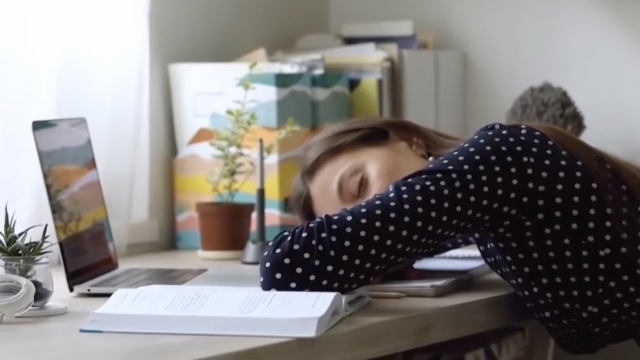According to the latest research, Americans are not very well rested.
Doctor Stuart Quan is a professor of sleep medicine at Harvard Medical School. He’s co-authored a recent study that found less than one-third of American adults are achieving restorative sleep each night.
"We are a country of sleep-deprived individuals. Most Americans feel that after a night's sleep that they just don't feel well. They don't have energy. The thing that sleep is supposed to do for them, which is to make them feel better the next morning, isn't happening to a large number of individuals," Quan said.
And many Americans aren’t getting enough sleep, period — restorative or otherwise.
Francesco Cappuccio is a cardiovascular and sleep expert.
"The amount of the average duration of sleep reported by us people has been declining steadily. In around 1910, the average American was asleep in excess of nine hours per night," Cappuccio said.
A century later, the average American was getting 6.8 hours per night, according to a 2013 Gallup poll. And an analysis from mattress company Zoma found the U.S. ranks 14th in sleep time among the 37 countries it examined.
The American Academy of Sleep Medicine recently put out a statement calling sleep a "biological necessity" and said a lack of it can be "detrimental" to someone’s health.
Cappuccio has studied the long-term effects of sleep deprivation.
"You're more likely to become obese or gain weight if you don't sleep enough. You’ll develop diabetes. You’re more likely to have high blood pressure, and as a consequence, you develop heart attacks, strokes, heart failures and you die earlier," Cappuccio said.
Both of the experts Scripps News spoke with say multiple factors are causing America’s sleep deprivation crisis, including increased exposure to artificial light and societal pressures to prioritize work over sleep.
"A great number of Americans feel the urge to, basically, to be always on," Quan said.
That reality is keeping many Americans from getting a healthy amount of sleep.
"I'd recommend that basically every American set a target to try and get at least seven hours of sleep per night," Quan said.
That’s the number the CDC recommends too, but the data shows making that a reality is a far-off dream for many.




